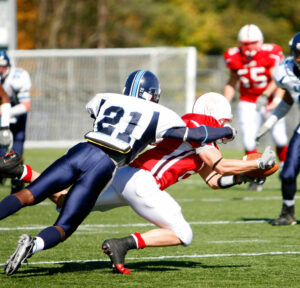New research has found that teenagers who suffer a traumatic brain injury (TBI) have a significantly higher risk of attempting suicide, being bullied, and seeking help for mental health issues. They are also more likely to become bullies, take medication for anxiety and/or depression, or engage in antisocial behaviour.
Neuropsychologist and lead researcher Gabriela Ilie believes the results should serve as a “wake-up call” for parents, educators, and medical professionals. Caregivers must be vigilant to screen and monitor brain-injured kids over the long term.
The study includes survey data from 9,000 Ontario students in Grades 7 through 12.
Ilie’s earlier research revealed that 20% of youth in Ontario said they have experienced a TBI in their lifetime. The latest study finds this group is three times more likely to attempt suicide and twice as likely to be bullied, bully others, seek help from a crisis helpline, or be prescribed medication for depression and anxiety.
Brain damage affects “how we think, how we feel, [and] how we act in the world,” said Ilie. “We can’t ignore this.”
The Centre for Addiction and Mental Health says 70% of mental health problems have their onset during childhood or adolescence. In Canada, about 1 million kids have a mental disorder. Mental illness can seriously impact a teen’s education or career path and result in poor employment opportunities.
The side effects of concussion cause emotional turmoil and make it even more challenging to learn and navigate social relationships, says Ilie. Parents, teachers, sports coaches and health providers must stay on top of how brain-injured teens are faring mentally and emotionally over time.







